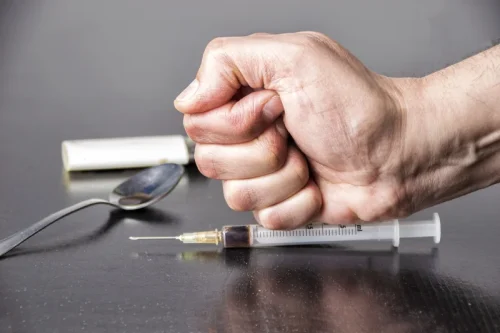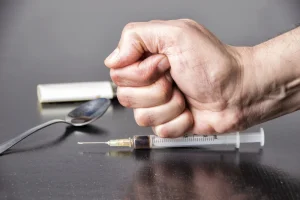
They can provide personalized recommendations for supplementation and ensure safe and effective usage. Alcoholism can lead to deficiencies in various vitamins, including vitamin A and vitamin C. Chronic alcohol intake can interfere with the absorption of these essential nutrients, resulting in various symptoms and complications. To prevent anemia and related issues, it is essential to ensure an adequate intake of folic acid and other B-complex vitamins. These vitamins play a critical role in red blood cell production and overall hematological health. Foods rich in folic acid include leafy greens, beans, and fortified grains.
- Recovering alcoholics need to follow the advice of a doctor for dietary or supplemental intake of these vitamins.
- Too much alcohol can cause inflammation in your stomach lining and pancreas.
- Experts suggest a diet composition for those in alcohol recovery of approximately 45% carbohydrates and 30% healthy fats, with the remaining 25% from protein.
- Recovering alcoholics should speak with their healthcare provider or a qualified nutritionist to help determine which supplements are right for them.
- Addiction medicine focuses on finding the most effective ways to help you overcome alcoholism.
Sober Curious? Here’s How Ditching Alcohol Can Improve Your Health and Hormones
- Many individuals attempting to embrace recovery from alcohol struggle with a syndrome called post-acute withdrawal (PAWS).
- A lack of vitamin C can deplete bone and muscle strength, leading to chronic fatigue and a lack of energy.
- In addition, ensuring adequate magnesium intake through diet or supplements may help reduce the risk of muscle-related issues.
- Chronic alcoholics are typically deficient in vitamin B1 (thiamine), vitamin B6, vitamin B9 (folate), and vitamin A3.
Certainly, alcohol can beat up our bodies and leave some permanent damage. In fact, it is estimated that an alcohol abuser typically gets 50 percent or more of total daily calories from alcohol. Unfortunately, the calories gained from alcohol and junk food are “empty calories.” That is, they are calories lacking nutrients and are of little value to the body. Signs of vitamin B deficiency in drinkers may include fatigue, weakness, neurological issues like tingling or numbness, memory problems, and mood disturbances. Severe deficiency can lead to conditions like Wernicke-Korsakoff syndrome, characterized by confusion, coordination problems, and memory loss.

Other Vitamins Drinkers Should Consider
Certain vitamins can play a marijuana addiction key role in this process, helping to alleviate withdrawal symptoms and promote overall well-being. Incorporating these vitamins into your diet or taking them as supplements can make a significant difference in your recovery journey. Chronic alcohol consumption can significantly impair the body’s ability to absorb and utilize essential nutrients, leading to notable vitamin deficiencies. These deficiencies can contribute to a range of health issues that complicate recovery from alcohol dependency. Understanding these effects underscores the importance of nutrition in the recovery process, as a well-balanced diet can help to repair alcohol-induced damage and restore optimal digestive function. Research indicates that a focus on gut health is essential for individuals recovering from alcohol use disorders, as it plays a crucial role in both physical and mental recovery.
More on Substance Abuse and Addiction
There hasn’t been a lot of research on the role of nutritional therapy in recovery from substance use yet. That said, some studies have found that it can boost your chances for a successful recovery. Other research shows that thorough nutrition education can improve the odds that you’ll still be sober after 3 months. Thiamine B1 is especially beneficial for alcoholics, as many experience deficiencies related to nerve problems.

Group therapy and participation in programs like Alcoholics Anonymous can also provide a valuable support system for individuals in recovery. Additionally, magnesium may be considered to aid in recovery and muscle relaxation. Consult with your healthcare provider to determine the best course of action and appropriate supplementation. It’s important to work with a healthcare provider or nutritionist to determine the appropriate use of supplements as part of a larger recovery plan. We reached out to nutritionist and health advocate Meaghan Greenwood to ask some questions about supplements for recovering alcoholics.
Nourish With Vitamins and Minerals

These vitamins play crucial roles in repairing damage caused by alcohol use and replenishing vital nutrients that have been depleted. Additionally, minerals such as magnesium, zinc, and selenium can provide much-needed support for cognitive function and overall health. Addressing these vitamin deficiencies is crucial for individuals with alcoholism. Proper supplementation, under the guidance of healthcare professionals, can help replenish nutrient levels and support the recovery process. Alcoholism is characterized by a physiological and psychological addiction to the substance, which gradually occurs from chronic use changing brain chemistry.

She has best vitamins for recovering alcoholics a master’s degree in clinical social work and a Ph.D. in health psychology. Incorporating mindfulness practices, such as meditation and deep breathing, can help manage stress and maintain mental clarity during the recovery process. It’s important to speak with a healthcare provider before taking any supplements to ensure that they will not interact with other treatments. Nutritional supplements are becoming more and more popular in the United States. Increasing intake of nutrient dense foods can help to holistically recover lost or mal-absorbed vitamins in the body.
- The best way to manage alcohol withdrawal symptoms is to seek medical attention and follow a comprehensive treatment plan.
- Stable blood sugar levels are crucial for managing cravings and maintaining energy levels.
- Consuming a balanced diet that includes a variety of protein sources will help ensure you receive all the necessary amino acids for proper healing and a successful recovery.
- However, heavy drinkers experiencing severe side effects might consider the following additional supplements.
- The liver plays a critical role in metabolizing alcohol and getting rid of toxins in the body.
- Additionally, the National Institutes of Health reports alcohol dependence is a major cause of B-vitamin deficiency in the United States.
Signs of Heroin Addiction: Physical, Behavioral, & Psychological Indicators

Supplementation with glutamine can additionally assist in attempts to reduce weight as it reduces the body’s desire for sugar and carbohydrate. Supplements with anti-oxidative properties may help to neutralise metabolites of alcohol which normally have damaging effects15. If you or someone you know is struggling with alcohol addiction, these services may help. It’s recommended to consult with your doctor before beginning a new vitamin regimen to assure appropriate, personalized dosage and vitamins.

لا تعليق